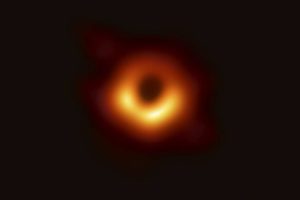Today sees the landing of the most advanced Martian exploration device thus far, the Perseverance Rover. Information on how to follow the event may be found at NASA’s official site.
Updated
Today sees the landing of the most advanced Martian exploration device thus far, the Perseverance Rover. Information on how to follow the event may be found at NASA’s official site.
Updated
(Sorry for the double-whammy of sad news, it’s just one of those days)
The observatory had been shut down since August from a cable snap that had punched a huge hole in the dish. But yesterday, the structure collapsed catastrophically.
Amigos es con profundo pesar comunicarles que acaba de colapsar la plataforma del Observatorio de Arecibo. pic.twitter.com/stJScy2Old
— Deborah Martorell (@DeborahTiempo) December 1, 2020
Update: The Demo-2 had a successful launch.
The first launch of a crewed spaceship from North America since 2011 was cancelled earlier this week, and hopefully, will happen today at 3:22 EDT / 1922 GMT. If successful, Robert Behnken and Douglas Hurley’s journey to the International Space Station will be the first time a privately-owned company has made the trip.
Some additional information and coverage:
Continue reading →
What would have been the first launch of a North American crewed spaceship since 2011 has been scrubbed due to unfavorable weather conditions. The launch has been rescheduled to Saturday, May 22 at 3:22 p.m. EDT / 19:22 UTC.
Coming in like a lion, the Deserted Crowd of Disguise and Costume roar back onto the breakroom boobtube, and Batwoman realizes she should smile a bit more, Supergirl will always love you, Black Lightning finishes his season, The Flash finishes off the Speed Force, and The Legends meet up with a non-spider-powered Mr. Parker. Saul takes up Yoga and finds inner peace. Things are looking up for Neil deGrasse Tyson, as his second season of Cosmos returns with two episodes. The other type of Good Doctor takes two recently broken up doctors and makes them work together on a small problem. Someone does their best to keep the Riverdale “teens” from getting back to the screen. To round out the week, we also get Picard learning what really caused the demise of the red planet.
[All synopses (and titles) from Trakt.tv below the cut, except when there really aren’t any. (If a show’s synopsis is a spoiler to you, do not click More…)]
CBS continues its rebroadcast of the original Moon Landing in real time:
Among several places you can re-view history.
CBS provides a live-time rebroadcast of the Apollo 11 moon landing, beginning with today’s launch, fifty years later.
I’m old enough to remember. A good deal of promise remains to be fulfilled.
 From Scientific American:
From Scientific American:
At six simultaneous press conferences around the globe, astronomers on Wednesday announced they had accomplished the seemingly impossible: taking a picture of a black hole, a cosmic monster so voracious that light itself cannot escape its clutches.
This historic feat, performed by the Event Horizon Telescope (EHT)—a planet-spanning network of radio observatories—required more than a decade of effort. The project’s name refers to a black hole’s most defining characteristic, an “event horizon” set by the object’s mass and spin beyond which no infalling material, including light, can ever return.
The discovery of organic matter and methane on Mars does not prove that the planet does or once did support living organisms, but it bolsters that case significantly.